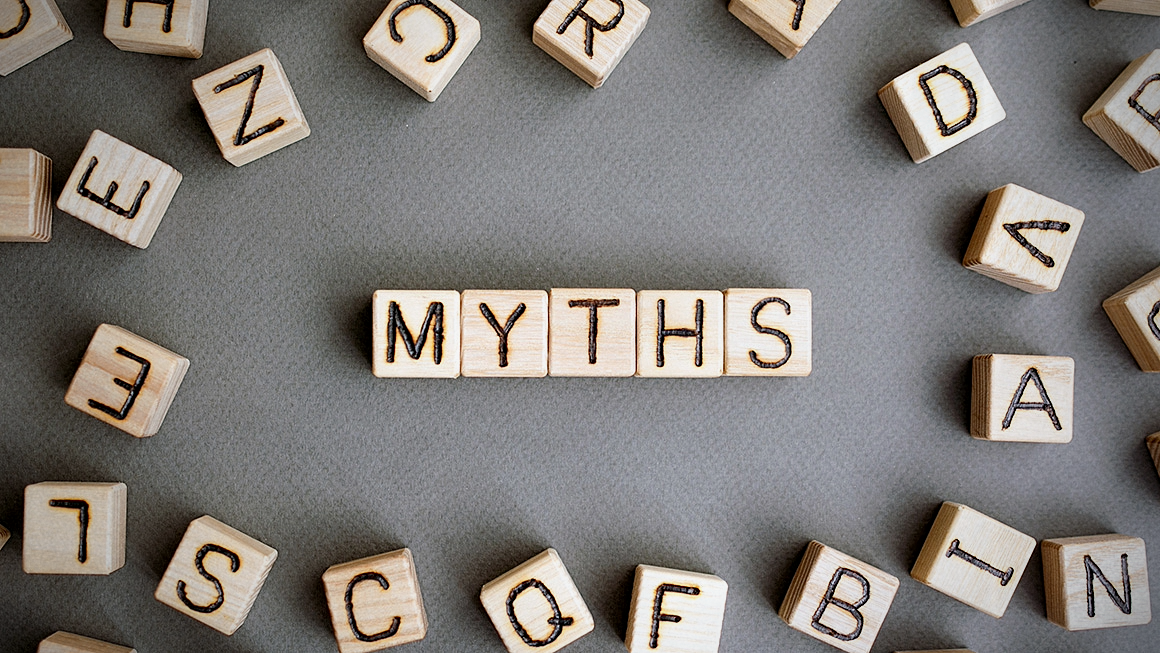
Busting 3 Myths About Bone Health
When it comes to bone health, there's a lot of confusion about what really works. Many people have heard certain myths over and over, and unfortunately, they can hold us back from making the best decisions for our health.
In this blog, we’ll debunk three of the most common myths about bone health to give you the truth, backed by science, so you can take proactive steps toward stronger bones. Whether you're in your 20s, 40s, or beyond, it’s never too early (or too late) to start caring for your bones.

Myth 1: “If I eat a healthy diet, I don’t need supplements.”
The Reality:
While a balanced diet is essential for overall health, it’s unlikely that you’re getting all the nutrients your bones need from food alone. Even the healthiest diet can fall short when it comes to key nutrients like calcium, magnesium, and vitamin D—especially as we age.
For example, calcium is primarily found in dairy products, but not everyone consumes enough dairy, and some people have trouble absorbing it. Plus, our ability to absorb calcium decreases as we get older. Similarly, many people don’t get enough vitamin D from food or sunlight, which is crucial for calcium absorption.
Tip:
While a nutritious diet is key, it’s essential to complement it with proper supplementation when necessary. Ensure you're getting adequate amounts of calcium, magnesium, and vitamin D, as these are fundamental to maintaining your bone health.
You can also check out Harvard Health’s guide to essential nutrients and Johns Hopkins’ tips on getting enough calcium and vitamin D to learn more about what nutrients your bones really need.

Myth 2: “More calcium = stronger bones.”
The Reality:
It’s easy to assume that more calcium automatically means stronger bones. However, your body can only absorb about 500 mg of calcium at a time. Taking excessive amounts in one go doesn’t improve bone health and could be wasted. In fact, without key nutrients like Vitamin D and Vitamin K, excess calcium may not only go unused—it can also be misdirected, potentially leading to issues like calcification in the arteries.
Additionally, calcium absorption is heavily dependent on other nutrients like vitamin D. Without adequate vitamin D, your body won’t be able to absorb calcium properly, regardless of how much you consume. It’s all about balance.
Tip:
For optimal bone health, it’s important to get the right amount of calcium spread throughout the day, ideally paired with Vitamin D and Vitamin K. These nutrients work together to ensure that calcium is absorbed properly and directed where it’s needed most.
For more detailed info on calcium and vitamin D, check out Mayo Clinic’s article on calcium supplements and Current Rheumatology Reports’ study on calcium and vitamin D.

Myth 3: “Calcium causes kidney stones.”
The Reality:
Many people believe that taking calcium supplements can lead to kidney stones, but this is not true for most people. In fact, calcium can actually help prevent kidney stones by binding to oxalates (the compounds found in foods like spinach and nuts) and preventing them from forming stones. It’s only in cases where someone has a history of kidney stones and certain other conditions that calcium supplementation may need to be approached with caution.
Tip:
If you're worried about kidney stones, it’s a good idea to consult with your doctor about the right dosage for you. For most individuals, calcium is safe and can actually help reduce the risk of stones when taken correctly alongside other essential vitamins and minerals.
Read more on calcium and kidney stones here and Mayo Clinic’s Q&A on kidney stones and calcium.
Conclusion:
When it comes to bone health, it’s essential to separate fact from fiction. Understanding the truth behind these common myths will help you make more informed decisions about your health. A healthy diet is important, but don’t overlook the need for supplements that support your bones, like calcium combined with other key nutrients. Remember, balance is key—more isn’t always better!
By understanding the truth behind these myths and focusing on the right vitamins and minerals, you can proactively support your bones and promote long-term health.